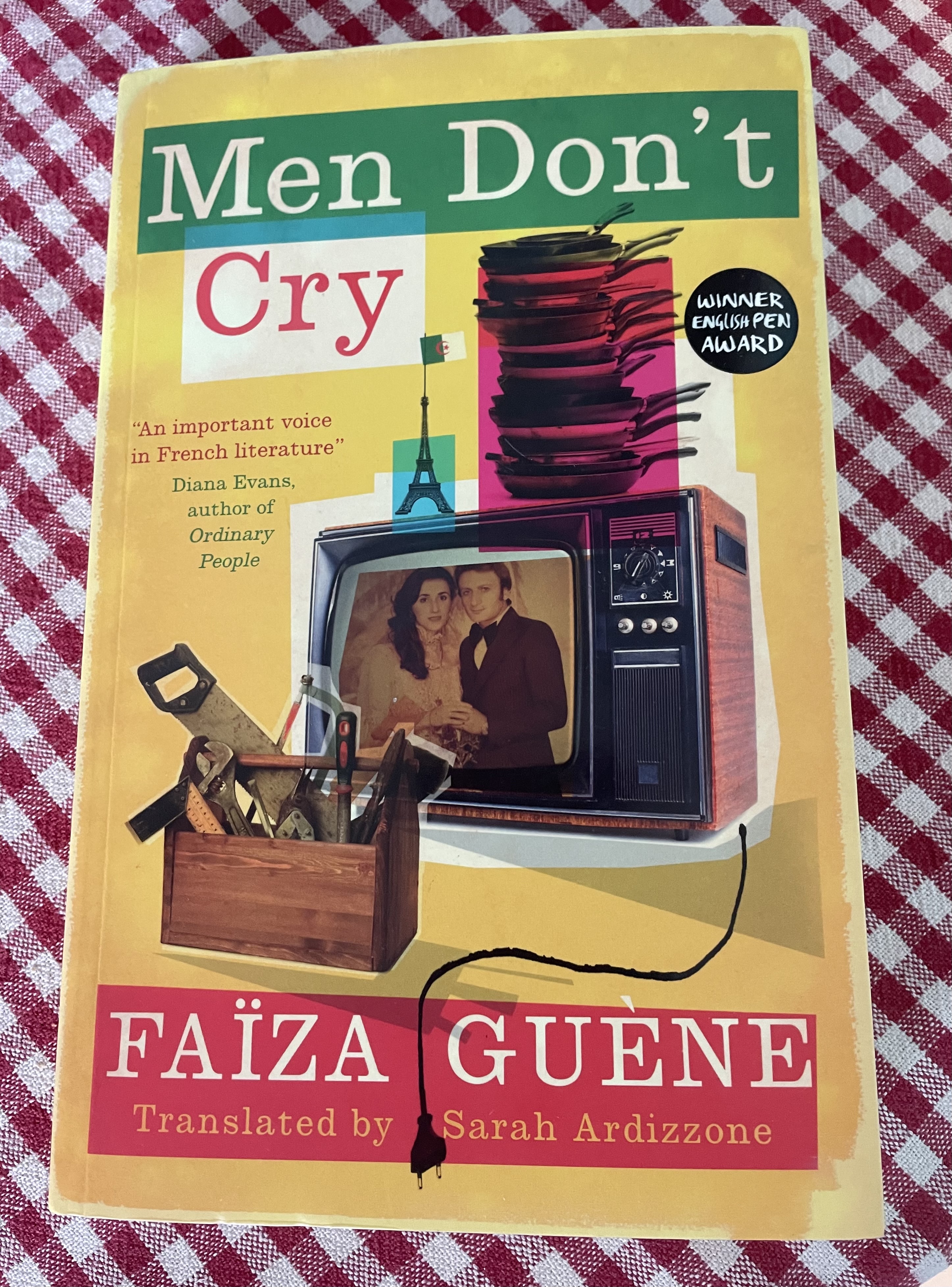 Faïza Guène’s Men Don’t Cry is an absolute cracker of a novel, one of our favourite books of 2021 so far (and, most likely, far beyond, for that matter). Through the entertaining, witty perspective of Mourad, a young French man of Algerian heritage, the novel explores universal themes of immigrant identity, prescient questions about being accepted, and the pull between one’s heritage and one’s adopted country. It’s about what it means to belong; what it means to be of a place and culture. It’s also about family conflicts, coming-of-age, masculinity and making your own way in the world - and all delivered in wry, thought-provoking style.
Faïza Guène’s Men Don’t Cry is an absolute cracker of a novel, one of our favourite books of 2021 so far (and, most likely, far beyond, for that matter). Through the entertaining, witty perspective of Mourad, a young French man of Algerian heritage, the novel explores universal themes of immigrant identity, prescient questions about being accepted, and the pull between one’s heritage and one’s adopted country. It’s about what it means to belong; what it means to be of a place and culture. It’s also about family conflicts, coming-of-age, masculinity and making your own way in the world - and all delivered in wry, thought-provoking style.
As such, Men Don’t Cry is the perfect novel for reading group discussions, so here are a few questions to kickstart your own conversations around this stimulating, utterly absorbing contemporary tale.
1. Summarise Men Don’t Cry in three words.
2. What are the novel’s principle themes?
3. Men Don’t Cry is a novel in translation. Were you ever aware it was translated? What might have been tricky to render into English?
4. Mourad describes “Men don’t cry” as his father’s “commandment”. How does the title relate to Mourad’s life, and the novel’s themes? Towards the end, Mourad poses the question, “why don’t men cry?” Does the novel answer this question? What does the novel say about modern masculinity?
5. Did you think there’s any significance in Mourad’s dad being a hoarder? Why do you think he shows little motivation for rehabilitation?
6. “A mother is like a great destiny: beautiful and harsh at the same time.” What does Mourad mean by this? Is this an honest description of his mother?
7. “We were all paying for her shitty freedom, and we’d been doing so for years.” So says Mourad of his sister, Dounia. Did you agree with the family’s view of Dounia? Are they over-critical of her?
8. Did you agree with Dounia’s view of her family? For example, is it fair of her to describe her father as “authoritarian, change-averse, illiterate”? Is she right to describe her mother as a woman who “reproduced, in spite of herself, an upbringing aimed at destroying any sort of self-realisation, incarcerating her emotions inside like the rich sauces of the dishes she cooked”?
9. Did any scenes make you laugh out loud?
10. Will Mourad ever find love? Do you think he wants to?
10. What did you think of the relationship between Miloud and Liliane? Is it exploitative? If so, who’s exploiting who?
11. “To be fully French you have to deny part of your heritage, part of your identity, part of your history, part of your beliefs, and yet when you succeed in achieving all that, you’re still reminded of your origins…So what’s the point?” What’s the significance of Mourad’s confrontation of his sister’s Minister lover at the embassy event? Were you surprised he spoke out? Did this statement surprise you, or ring true?
12. “It doesn’t matter that Babar can walk on two legs, that he wears a three-piece suit and a bowtie, or that he drives an open-top car, he will always be an elephant!” Do you agree with Mourad’s Babar the Elephant analogy?
13. How did the ending make you feel? Was it expected? Do you think the family will be able to “start again”?
14. Has reading this novel changed your opinion of anything?
December 2020: Leave The World Behind by Rumaan Alam
January 2021: Victoria Park by Gemma Reeves
February 2021: Mrs Death Misses Death by Salena Godden
March 2021: Barn Club by Robert J Somerville
April 2021: Unsettled Ground by Claire Fuller
May 2021: The Funny Thing About Norman Foreman by Julietta Henderson
June 2021: Erringby by Gill Darling
July 2021: Everyone in This Room Will Someday Be Dead by Emily Austin
August 2021: Daylight Come by Diana McCaulay
September 2021: History by Miles Jupp
If you want even more book club recommendations, browse our selection here.



Comments (0)
Leave A Reply
You must be logged in to post a comment.